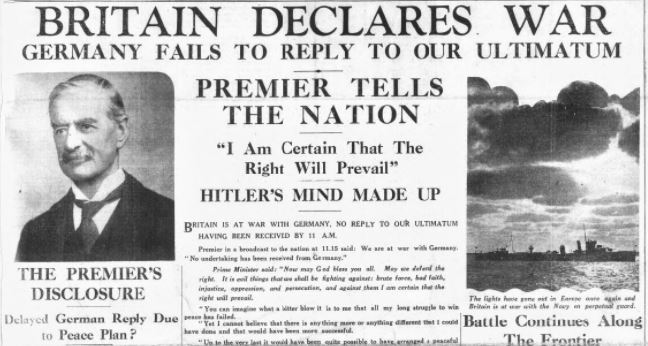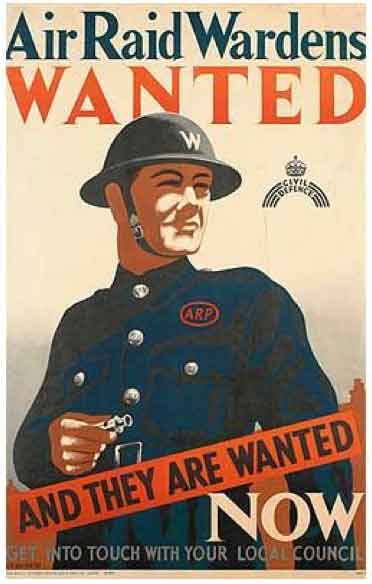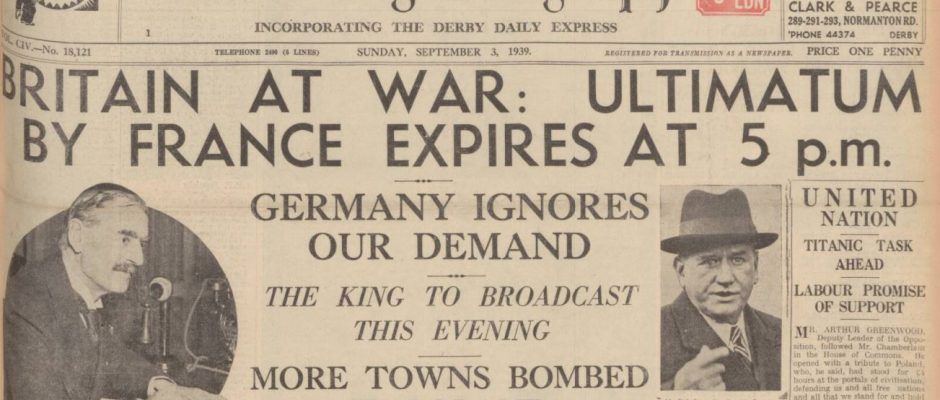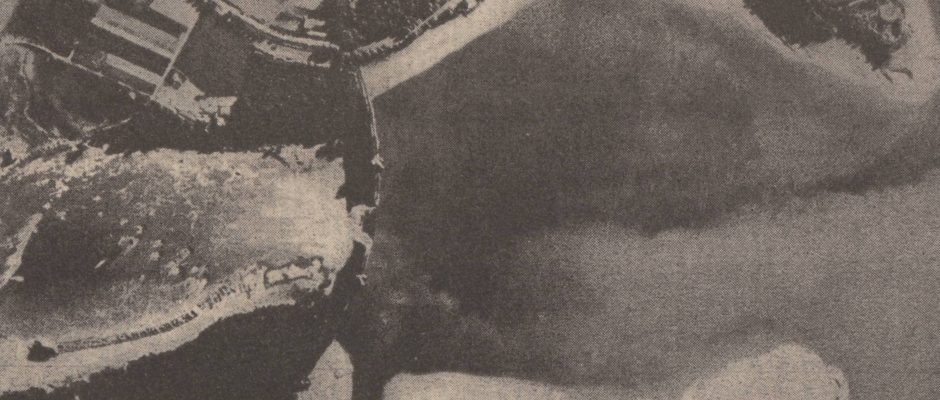On the night of the 19th January 1915, two German Zeppelins appeared out of the dark on the Norfolk coast and conducted the first airship attack on British soil. They had set out for Humberside, but strong winds had seen them divert to the areas around Great Yarmouth, Sheringham and King’s Lynn. It would be the first of over 50 Zeppelin attacks on the UK. Strategically, they proved largely ineffective, with night raids and bad weather conditions making it difficult …
Second World War
Newspapers are valuable sources for researching historical events, most especially those of such national importance as a declaration of war. Register now and view 3 pages for FREE In August of 1939, Britain and Poland signed an agreement of mutual assistance. This mean that were any foreign power to interfere with either country militarily, the other would rush to their aid. Days later, on September 1st, Germany crossed the Polish border under a flag of nationalism, on an invented crusade …
Tags
The bombing of civilian targets in Britain during the Second World War is now commonly referred to as ‘The Blitz’. The song ‘All Stick Together’ released by Ralph Butler in 1939 summarised the need for Britain to pull together as a nation against the threat of an invasion, and the ‘Blitz Spirit’ has gone down in history and is still invoked today in times of strife. However, whilst the vast majority of the population may have been sticking together, there …
Tags
Not only does 2014 mark the 100th anniversary of World War One, it is also the 75th anniversary of the start of World War Two. Britain declared war on Germany on 3 September 1939, following Nazi Germany’s invasion of Poland on 1 September. Take a look at the newspaper headlines from Sunday 3 September, announcing that Britain was at war once more. Search newspapers from World War Two Newspaper headlines from the beginning of WW2 Derby Daily Telegraph …
Tags
St George’s Day and the anniversary of Shakespeare’s birth both fall on 23 April. ‘There will be justice and victory’ This patriotic advert from Ford was published in The Yorkshire Post and Leeds Intelligencer to mark the day during World War Two. It states that ‘wherever the tongue of Shakespeare is spoken, there will be justice and victory’. View the whole newspaper page The Yorkshire Post and Leeds Intelligencer – Thursday 22 April 1943 Image © Johnston …
Tags
English writer Virginia Woolf committed suicide on 28 March 1941. She struggled with depression and was deeply affected by the Second World War. ‘I cannot go on’ Woolf left a touching note for her husband, saying ‘I owe all my happiness to you, but cannot go on and spoil your life’. Read the full transcript of her letter, as printed in the Gloucestershire Echo: View the whole newspaper page Gloucestershire Echo – Saturday 19 April 1941 Image © Local …
Tags
‘When Barbarossa commences, the world will hold its breath and make no comment’ – Adolf Hitler On 22 June 1941, Hitler ordered the start of ‘Operation Barbarossa’ – the campaign to conquer the Soviet Union. To mark the day, here are some contemporary newspaper stories (published the day after the invasion started) that report on the start of the war between Nazi Germany and the Soviet Union. Image © Northcliffe Media Limited. Image created courtesy of THE BRITISH LIBRARY BOARD. …
Tags
On 16–17 May 1943, an attack on the Mohne and Edersee Dams was carried out by 617 Squadron, led by Wing Commander Guy Gibson. The attack famously used the ‘bouncing bombs’ that had been invented by Barnes Wallis. Included below is a newspaper report of the attack and also some photographs, which were published just two days afer the attack on the dams.





